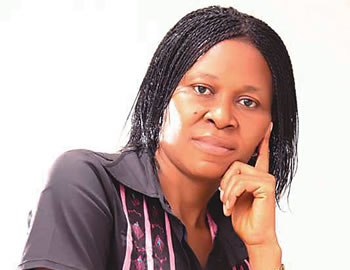In the history of this country, we never had a female president or governor. In your own view, is Nigeria ripe for this?
Whatever qualifies a man to occupy any position, be it president or governor, also becomes good enough to qualify a woman, especially when it has to do with their level of education, exposure and other advantages where our women today have renowned [personalities] and even more successful than many men. If multinational corporations and global industries can employ our women into strategic positions, like we currently have in many of Nigerian women today, what then stops us from being elected as president and governors back home? We are ripe for it, I must say.
What really is responsible for women apathy in politics?
Education, cultural issues and deliberate policies of political organisations and government in the past have greatly negatively impacted the capacity of our women to be politically active. But today, the trend is changing; women are no longer ready to be in the supporters club, but are rather ready to take the front seats.
Democracy is about 20 years in Nigeria, do you agree that the country has anything to show for it so far?
While we can’t but agree that there have been few improvements, compared to what was obtainable during the military junta (era), the fact remains that the yearnings and aspirations of our people, especially those who fought for the attainment of democracy, are yet to be met. Until this is achieved, we cannot say that we have made any reasonable progress for the number of years that democracy has returned to Nigeria.
From what you saw in the Ekiti State governorship election do you think we are advancing politically?
There are surely some gains that has been made, particularly in the area of the Independent National Electoral Commission (INEC)’s preparations and discharge of duties during the election. The attitude of our politicians, particularly those of the major political parties, have continued to set democracy on a reverse. We cannot but remind ourselves of the danger that conduct like vote-buying constitutes to our democracy and these, among others, are some factors that can be seen as not allowing the needed advancement of our democracy.
What impact did poverty make in the Ekiti governorship election result?
Poverty has become a major tool being used to exploit our people and this is one major factor responsible for the prevalent incidences of vote-buying, as witnessed during the election. While the delay in payment of salaries may have influenced the choices made by certain persons, particularly the civil servants, I think the right of the people to choose whoever they want to lead them supercedes every other factor.
We have the case of killer herdsmen, insecurity, incarceration of Leah Sharibu and many other vulnerable people by Boko Haram, do you think that the government is doing enough to address issue of insecurity?
The security situation in the country is sharply deteriorating more than we can imagine. There is helplessness in the air and it is very disturbing. One is worried that, like many other innocent children and women who are being held captive, the Dapchi girl, Leah Sharibu is still held hostage by the terror group. The government, particularly the Federal Government, must brace up and immediately redirect its approach towards handling the situation without any further delay.
Nigeria was recently rated as one of the most dangerous countries for women and children to live. How did you receive this news?
The environment is hostile; women and children remain vulnerable not only to the threat of terror, but also several archaic traditions, hence making it a fact, as stated in the report.
Corruption and poverty are endemic in the land, any hope for the country?
There is no way we can totally eradicate the cancer of corruption and its attendant consequences, like poverty, without squarely resolving the questions around the system itself that requires an urgent restructuring. The country has every potential to be great, but this is dependent on our readiness to institute a system that gives power to the people.
Recently, former President Olusegun Obasanjo urged women to take their rightful place in politics, but the Nigerian women don’t appear resolute, why the apathy?
The womenfolk in Nigeria and even in Africa have been consistent in their demand for political power, especially at a time that women participation in governance have been on a considerable increase. Yet, it cannot be said that enough has been done, especially when you realise the percentage of women representation in public and private positions in our society.






